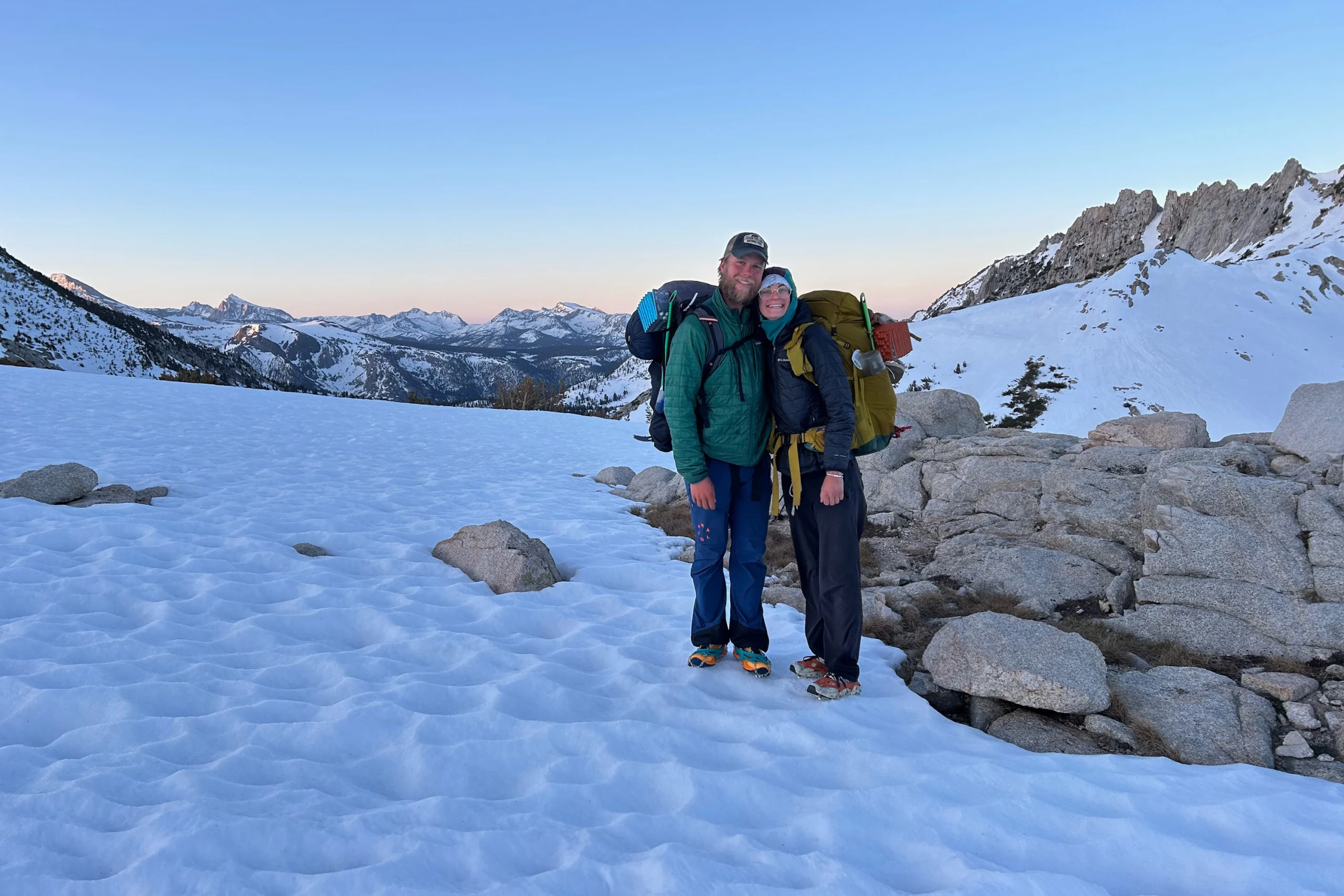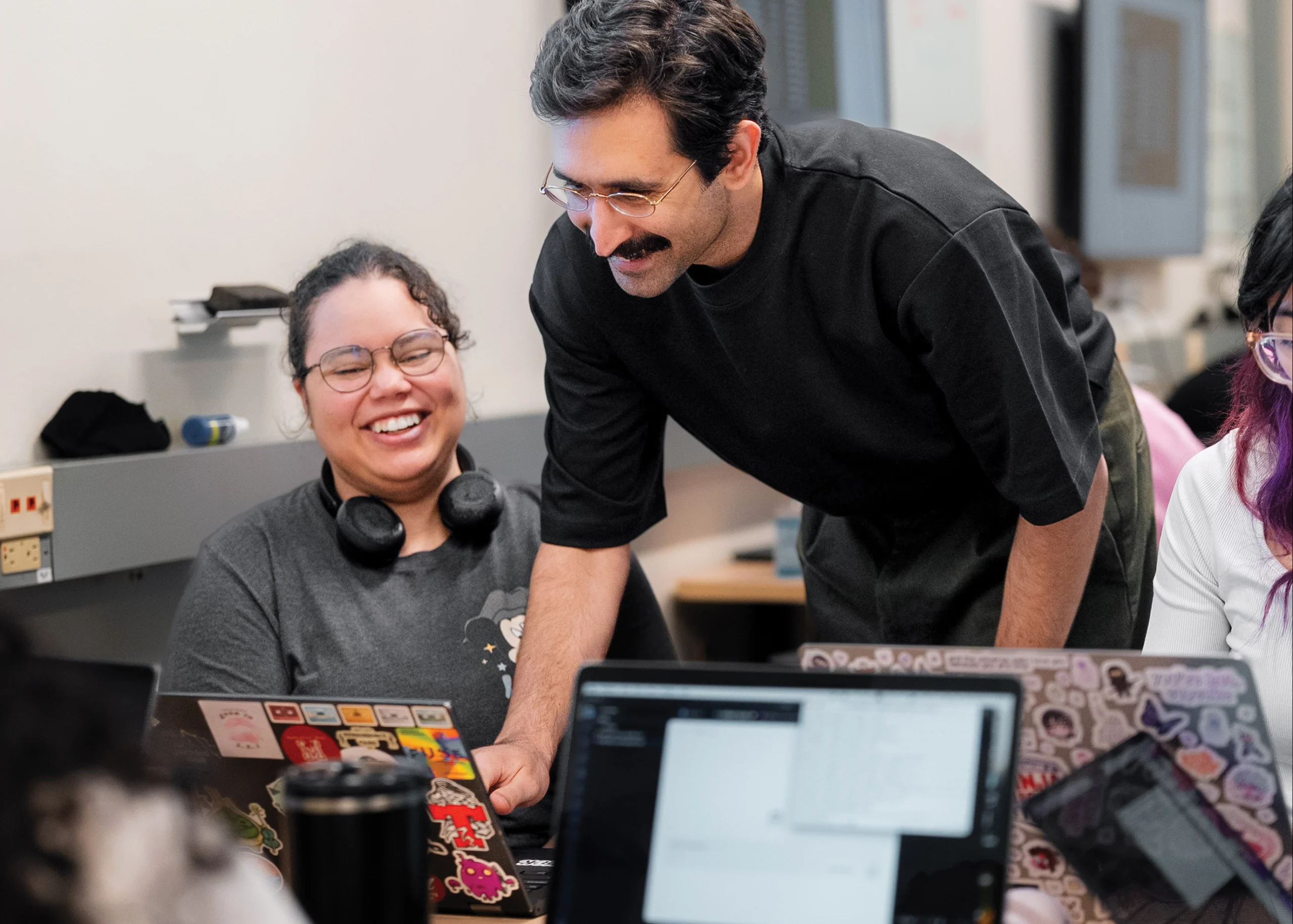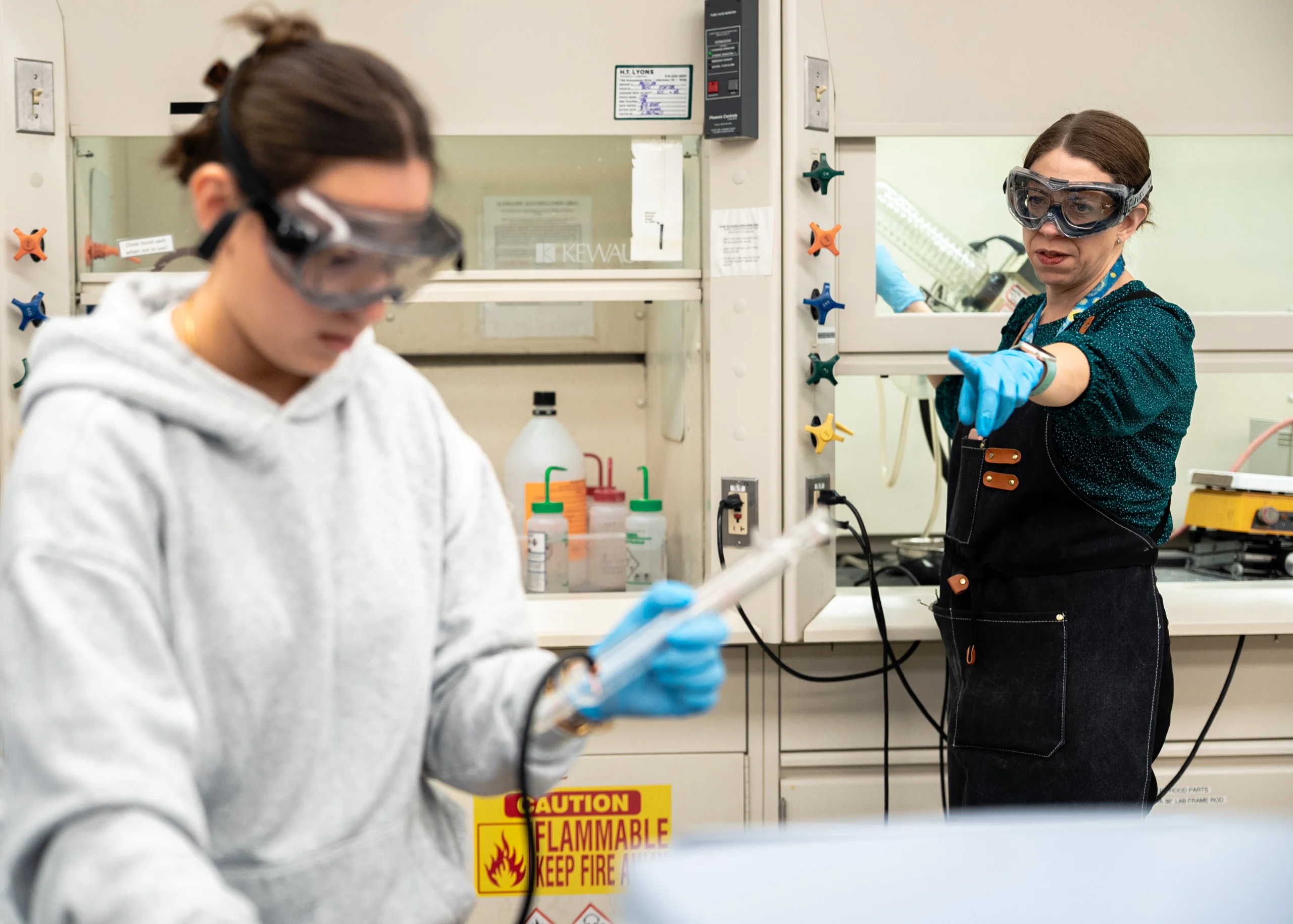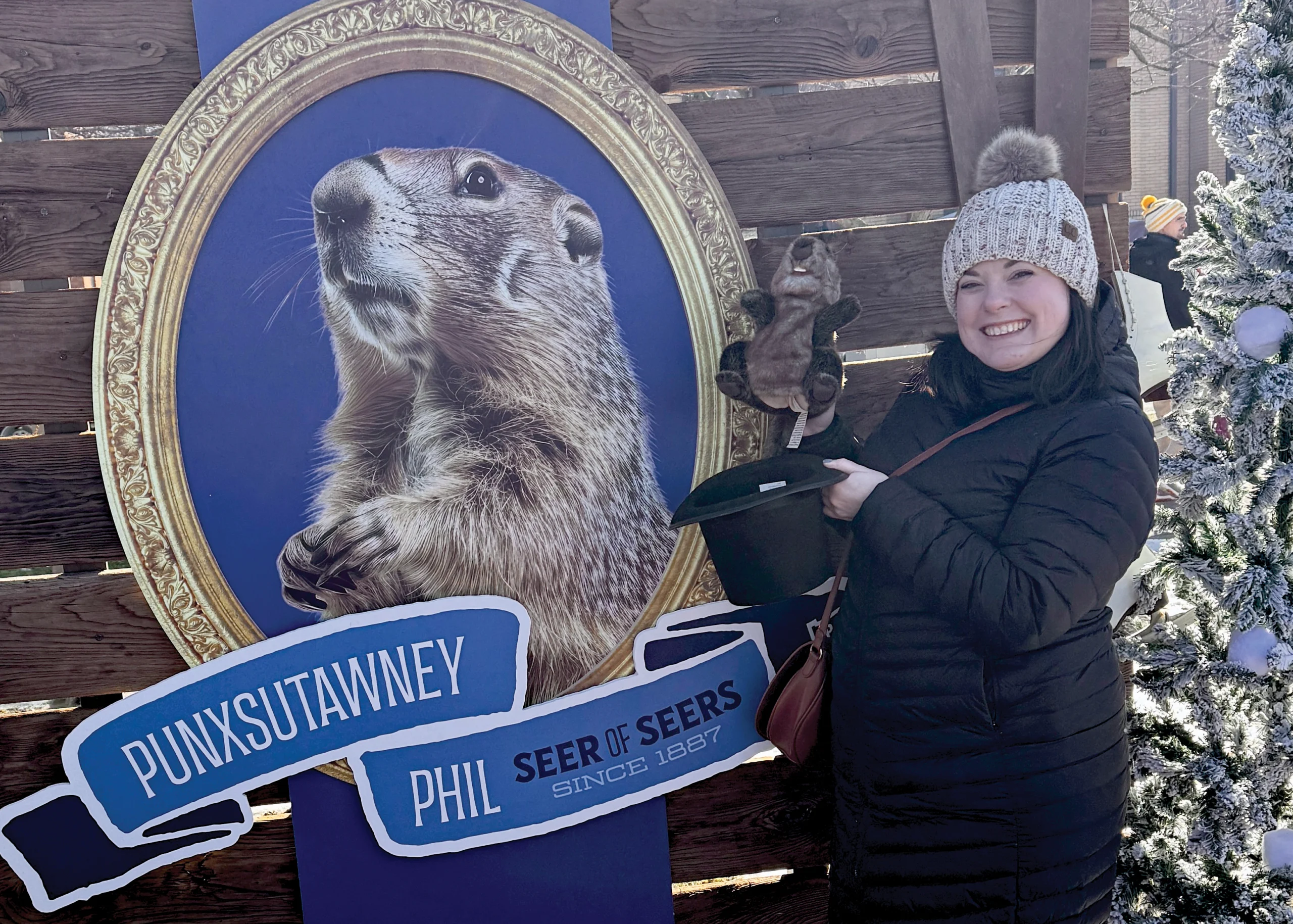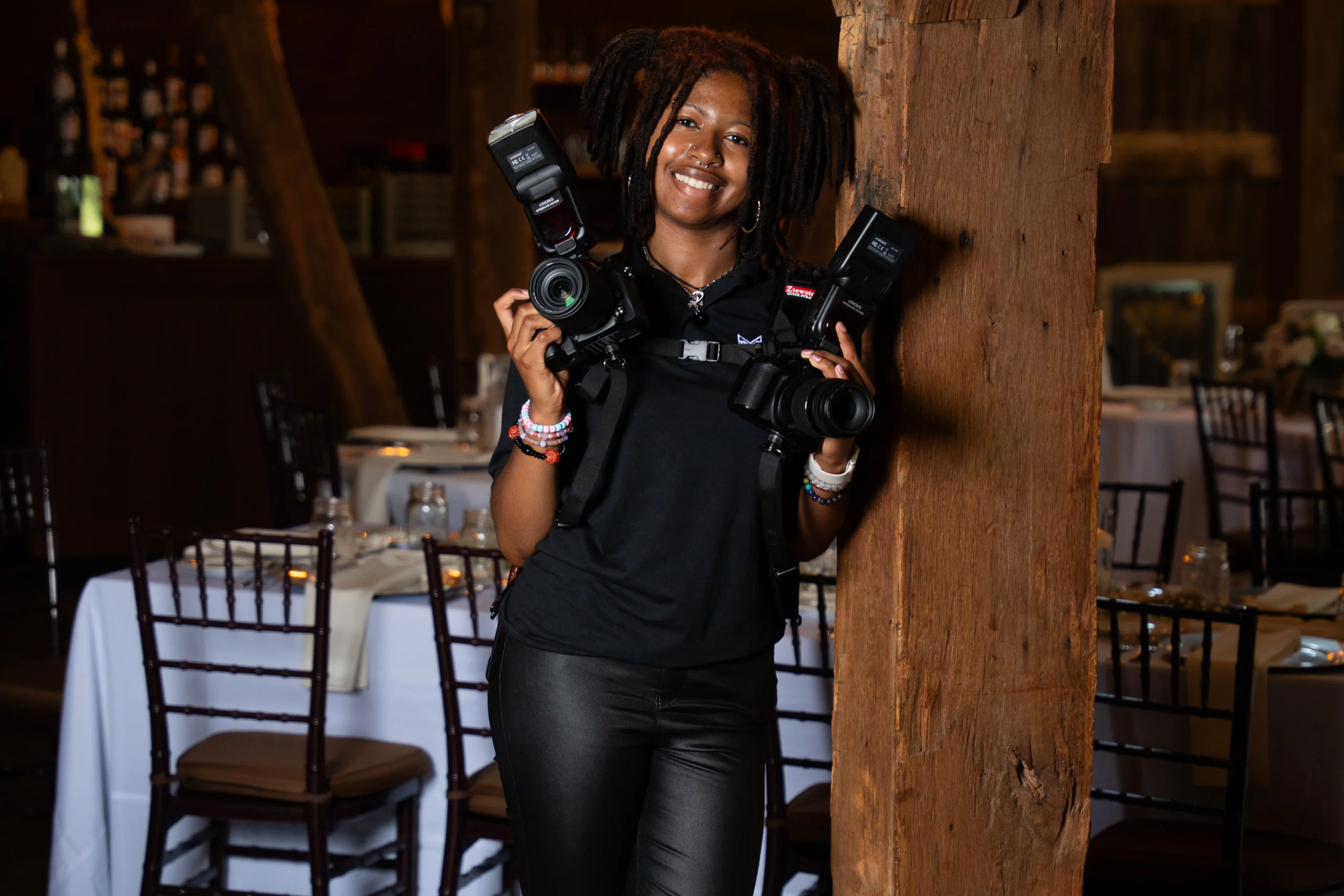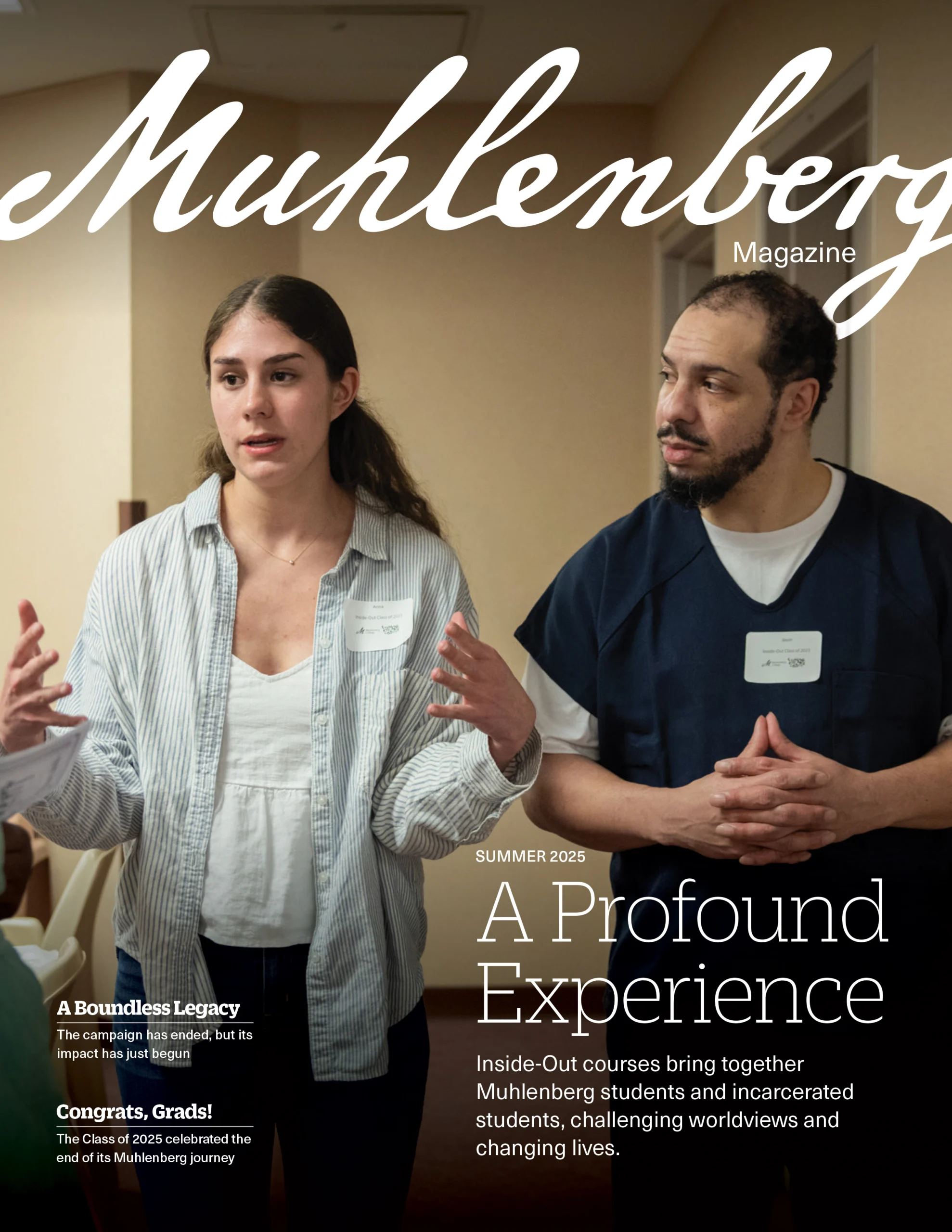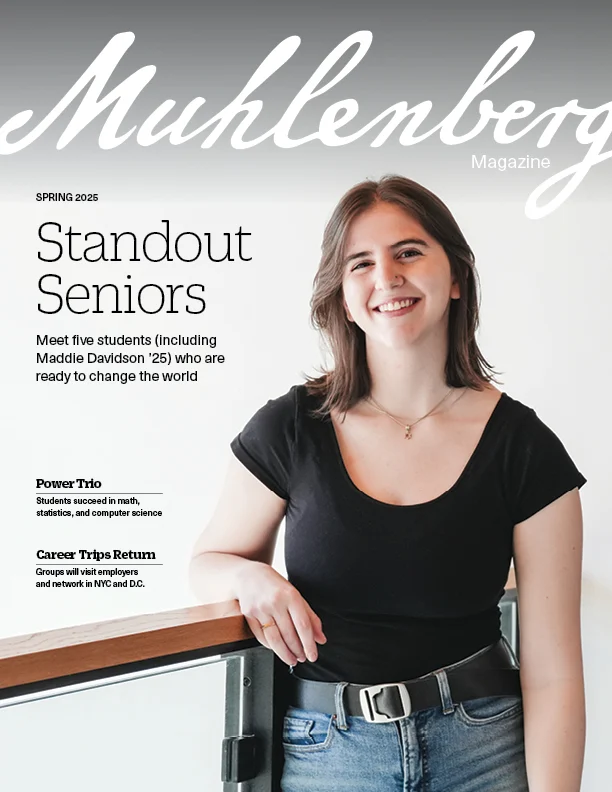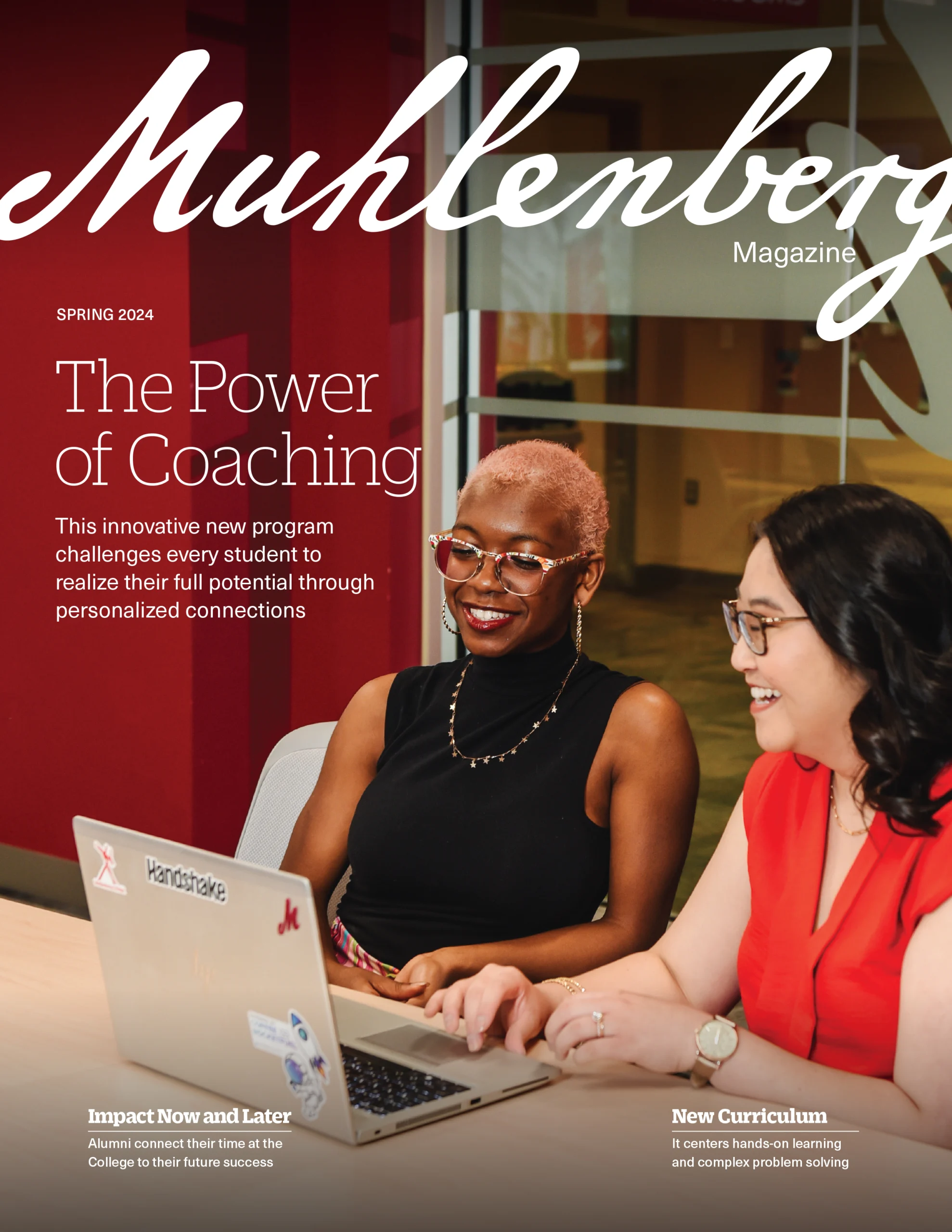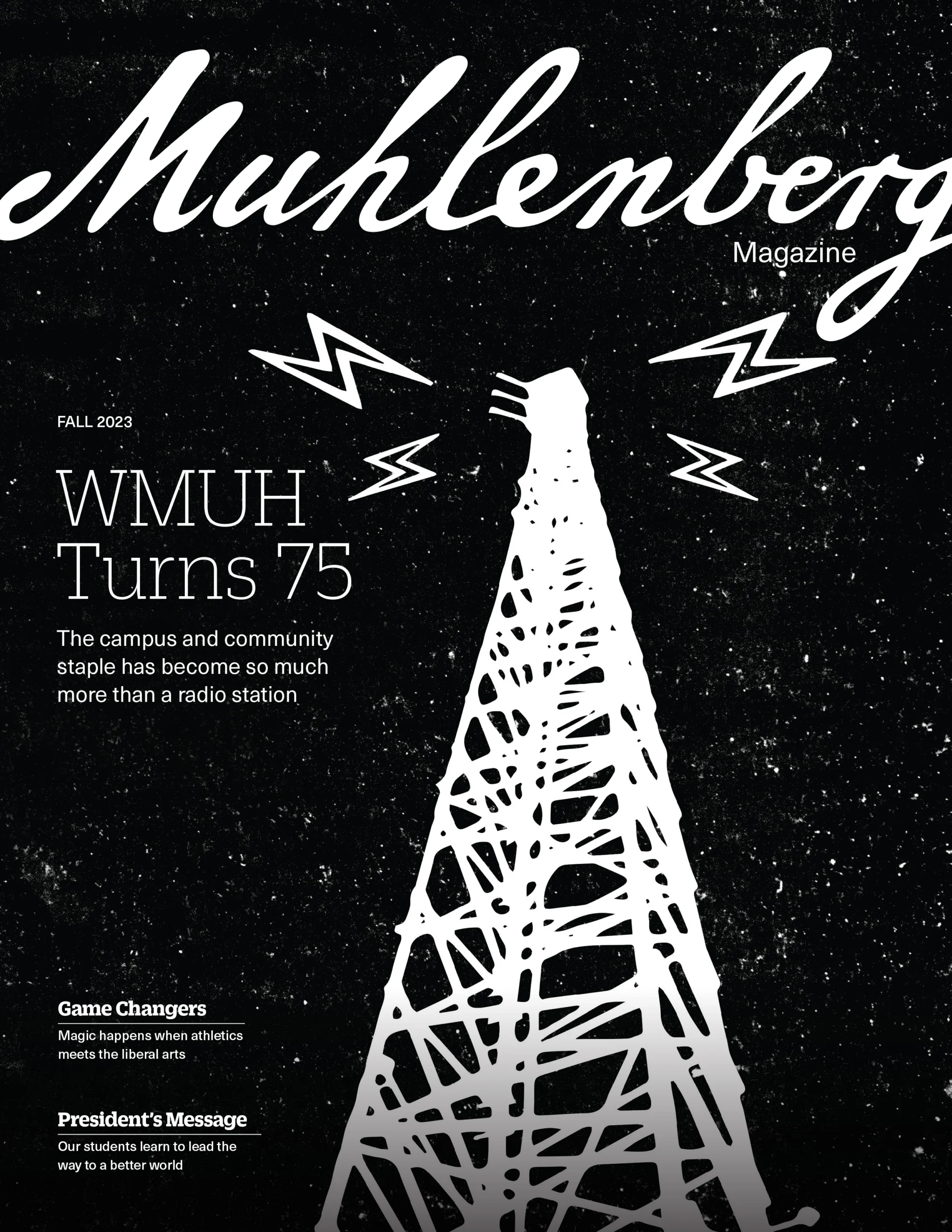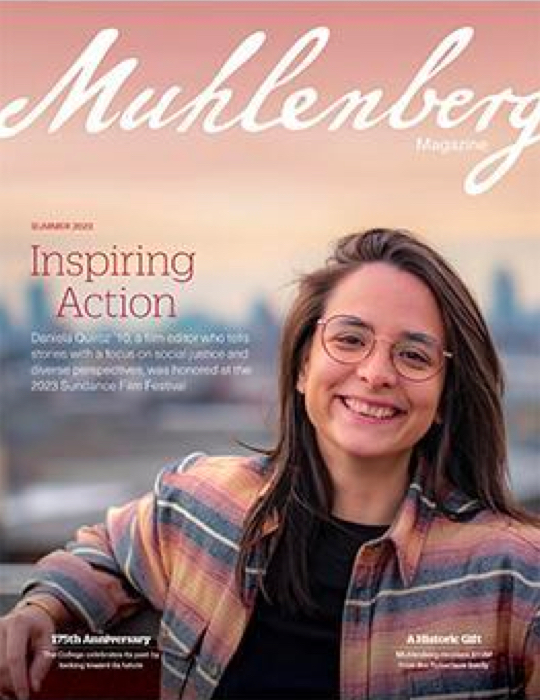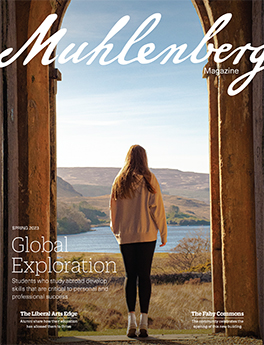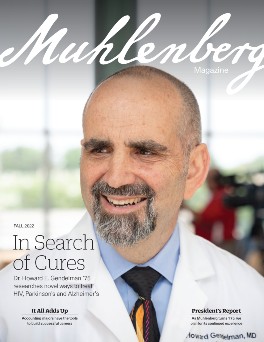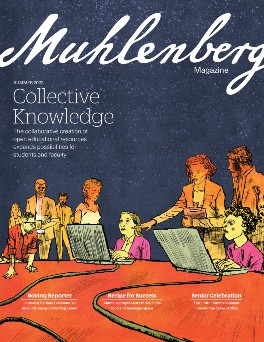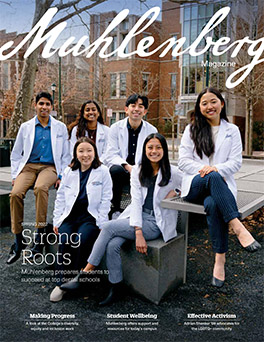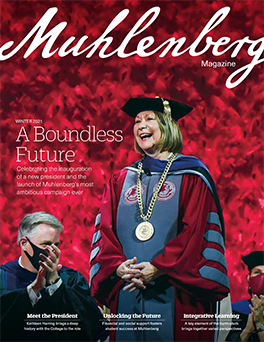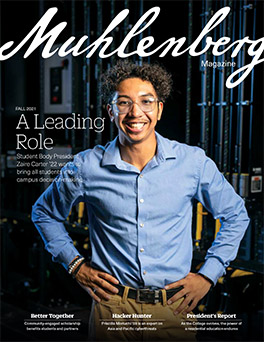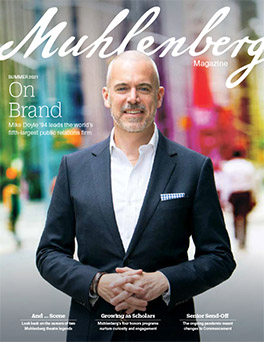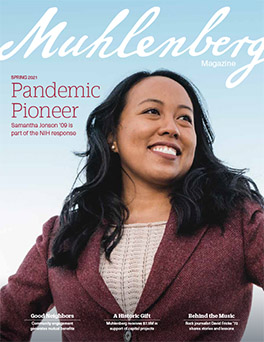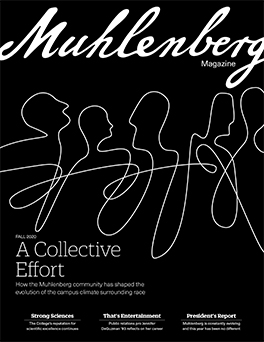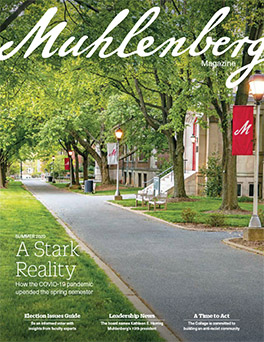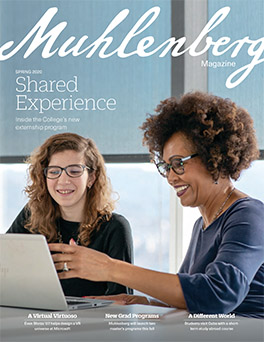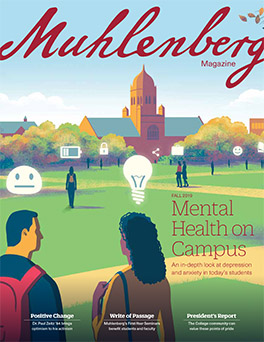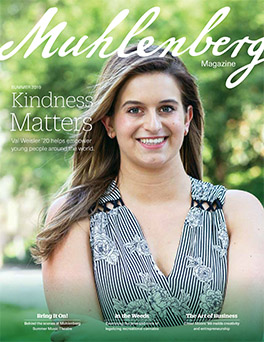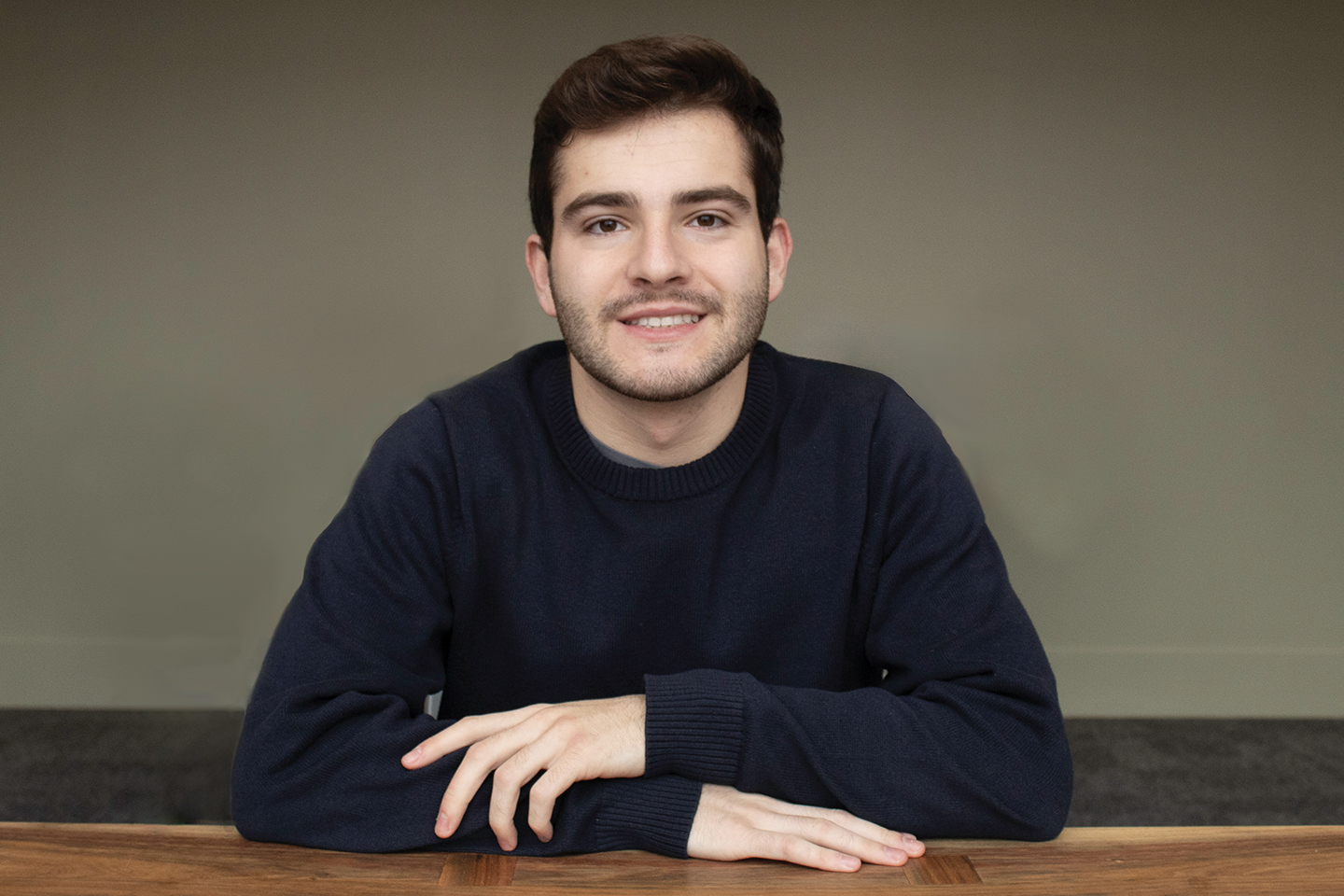
Meet Noah Halterman-Mitchell ’24
Halterman-Mitchell is a political science major and Spanish minor from Herndon, Virginia.
He knew from the start what he wanted to study in college …
“I’ve always known that I wanted to do something political. My parents used to joke that I was entertained by the political scenes in the Star Wars prequels when I was 7 years old, and that’s when they knew that I was going to be a political science major. I’ve taken a lot of classes about democracy: the U.S. democratic system, global democratic systems, how democracies become democracies and how they regress toward more authoritarian systems. I’ve always found that interesting because of what’s going on in contemporary domestic and global politics.”
… and he also knew he wanted to study abroad.
“One of the main reasons I came to Muhlenberg was because one of the advertising pitches is that more than 50 percent of students go abroad. I wanted a school that would emphasize going abroad as an important part of your college experience. I’ve been taking Spanish since middle school, so I decided I wanted to go to a Spanish-speaking country. I ended up choosing Spain. The program that I went on was in Bilbao, in the Basque Country. We spent a lot of time learning about different regional independence movements in Spain, including the Basque Country, and independence movements throughout Europe. The experience gave me a different view on Muhlenberg, because when I was there, I went to a school with tens of thousands of students. I realized I like the smaller classes and the smaller school size. But it gave me the opportunity to practice my Spanish every day.”
He took the Climate Change & Sustainable Development in Bangladesh Muhlenberg Integrative Learning Abroad (MILA) course, which culminated with a two-week trip to Bangladesh led by Professors of Political Science Jack Gambino and Mohsin Hashim.
“In class, we read about how the floods and saltwater intrusion were destroying crop land and villages. It’s different when you see something in a picture or a video than when you go and you see the bank of the river 10 meters from somebody’s house. One thing that we talked about in class is that a lot of the wealthier nations are going to experience the effects of climate change later than developing countries. One of the reasons why a lot of people [in the United States] don’t believe in climate change or don’t think that it’s serious is because we haven’t really felt the effects of it at a large scale, as other countries have. If people could see the destruction that climate change is causing elsewhere, they might be more willing to advocate for change.”
He began working for the Muhlenberg College Institute of Public Opinion (MCIPO) last semester …
“One of the paths I’m exploring after graduation is working on a campaign, and I thought working for a polling center would show that I care about elections. Also, I just find it interesting. We’ve done polls on people’s attitudes toward climate change, and we’re gearing up to do election polling. At the beginning of each week, [Professor of Political Science and MCIPO Director Christopher Borick] will send us data, and we’ll enter it into the software that we use and run crosstabs with categories like race, age, education and then different variables. So for the climate change one, we might compare college-educated and non-college-educated respondents’ opinions about climate change. Then we analyze the data and write a couple of short paragraphs about each of the charts describing what we see, how that tracks with previous polling and how it compares to actual climate data on what’s happening in the state. For example, the Philadelphia area is going to have some serious problems when the Delaware River starts to rise due to climate change, so we look at, ‘Are residents in the southeast part of the state feeling more of an effect than residents in rural areas?’ Dr. Borick has been a good resource and mentor for me and the other people working in the Institute. He gives us the opportunity to work with real data that has an impact on public opinion.”
“Dr. Borick has been a good resource and mentor for me and the other people working in the Institute. He gives us the opportunity to work with real data that has an impact on public opinion.”
… and he also worked as a co-facilitator for the Personal and Professional Development (PPD) course all first-year students must take.
“The PPD curriculum has changed for the better since I took PPD four years ago. It’s a lot more about understanding how the Muhlenberg community works and the resources that are available to you in the Muhlenberg community, the support network. For a lot of freshmen, myself included, it’s a bit of a difficult transition at the beginning to college life. So knowing who’s available to help you and having somebody like your PPD co-facilitator and your facilitator who can be trusted to help you find the information or the support that you need is a good thing that the College provides.”

